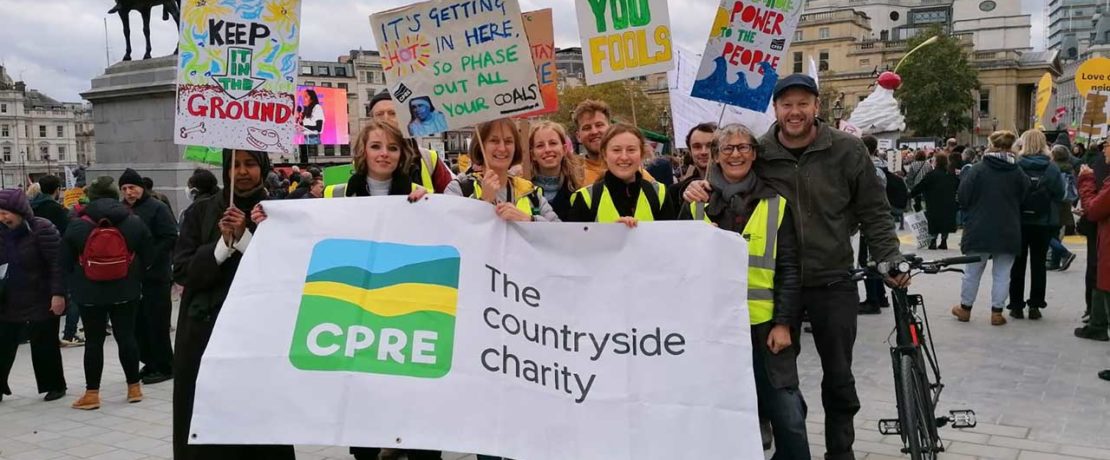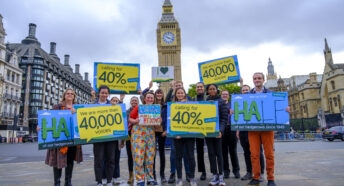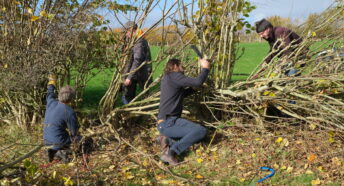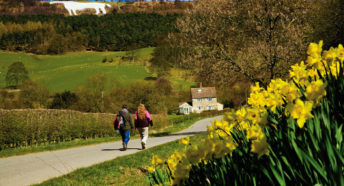2021: CPRE’s impact
2021 was another year of lockdowns and changed plans amid the ongoing pandemic, but CPRE hasn’t broken stride. Read about our impact in a year that saw record-breaking successes.
2021 was not without its challenges, as the charity sector and wider world adjusted to various iterations of a ‘new normal’ while the coronavirus pandemic rumbled on. Nonetheless, CPRE The countryside charity achieved great success with the incredible support of volunteers, funders and members.
To everyone who played a part: thank you.
Our successes started as soon as 2021 kicked off, with the publication of a Joint Vision for Planning, which saw CPRE bring together a broad range of housing, planning, transport, environmental, heritage, built environment and public health organisations to present a collective vision of how the government can maximise the potential of planning.
This was the first of many planning-related successes in 2021, as CPRE’s campaigns against some of the damaging proposals in the government’s new proposals for planning bore fruit. Parliamentary launches for our new research pulled large audiences, including MPs from all parties, and our lines on planning issues including low-carbon homes and brownfield garnered column inches and repeated mentions and meetings in parliament.
The year continued apace with our annual Star Count citizen science event in February 2021. Far from being impeded by lockdown, thousands of stargazers turned their eyes to the skies from windows, balconies and gardens to submit a record-breaking 8,000 counts.

Appearances on the BBC One Show and Sky News boosted the project into the galaxy – and the results, released in April, showed that these star-spotters had reported much darker skies this year – likely due to lockdown restrictions lowering light levels.
From heaven to earth: March saw us look to rural buses – or rather the lack of them – as we shared our call for a bus for Every village, every hour. This landmark report analysed rural areas without transport coverage – transport ‘deserts’ – and modelled what could be possible with the right investment.
And the busy first calendar quarter drew to a close with another success in the shape of a government rethink on a climate change issue: the proposals for a new deep coal mine in Cumbria. CPRE added its voice to local calls for a halt from the CPRE Lake District group, Friends of the Lake District, and March finally saw the government accede to our demand for a public inquiry into the mine.
As spring wore on and the long, grey winter abated, the green shoots of April heralded another revealing planning victory. CPRE had proved a powerful voice in helping to convince the government to backtrack on proposals to allow developers to build schemes of up to 50 homes without any of them being affordable. This toxic proposal could, by the government’s own admission, reduce the (already too low) delivery of affordable homes by 20%, and we were delighted at this U-turn following our pressure.
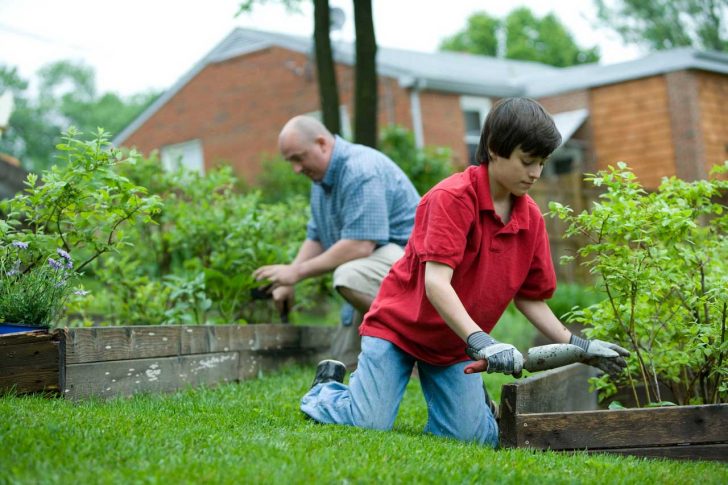
The power of our lobbying voice was reaffirmed the very next month when, in May, our long campaign against the burning of carbon-storing peatland helped bring about a spring announcement of legislation to ban the practice in protected blanket bog habitats. Hot on the heels of this pleasing development, we then welcomed the government’s first Peat Action Plan in the same month, which – in response to CPRE demands – included funded plans for peatland restoration and proposals to ban peat in composts and amateur gardening by 2024.
And the summer lobbying successes poured in when our close liaison with backbench MPs meant that the Housing and Communities Select Committee’s June report, The Future of the Planning System in England, followed the CPRE argument that ‘public engagement is critical in planning’ and included 27 references to CPRE.
2021 was also a great year for people power, and this was apparent in spades when we responded to the latest of several government consultations on its long-overdue Deposit Return Scheme (DRS). On top of our formal consultation submission, we put pressure on the prime minister to get moving on DRS when we gave him a ‘message in a bottle’ signed by around 35,000 people on his June birthday and over 1,800 of our social media followers tweeted to tell him to implement an all-in scheme as soon as possible.
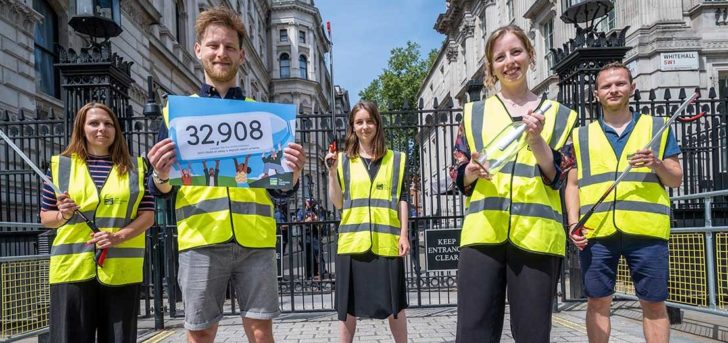
More packing a punch through the power of collaboration was evidenced by our July publication on planning, which laid out six tests that we and a cohort of 21 other organisations including The Wildlife Trusts, Greenpeace, the Ramblers and the RPSB would measure new government planning rules against. These six points act as a way to assess whether changes in regulations will achieve a gold standard planning system – for people and nature.
August saw us take a listening stance – essential in moving the charity forward towards being anti-racist, diverse and inclusive, and publishing some peer-led research into the experiences of accessing the countryside for people of colour. The researchers’ experiences and findings are a crucial component in CPRE’s vision of a countryside for all, and we found much to reflect on in their report.
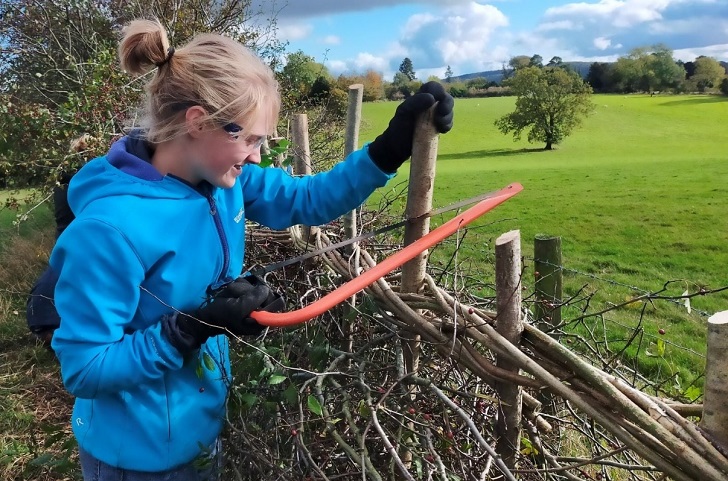
We also know we can’t have a thriving, healthy countryside for everyone to enjoy now and in the future without recognising the existential threat of climate change – a key feature in our 2021 campaigning for more hedgerows. But hedgerows aren’t just great for the climate and nature, as our Hedge Fund report, published in September, showed. Our findings demonstrated that achieving our target of a 40% increase in hedgerows by 2050 would result in the creation of over 25,000 jobs and that for every £1 invested in hedgerow planting, as much as £3.92 of value could be generated in the wider economy. Our report was launched at a parliamentary reception attended by environment secretary George Eustice MP.
The arrival of autumn saw us celebrating that the countryside is for everyone in our ‘we are the countryside’ social media campaign. Featuring the wonderful voices and stories of Victoria Ekpo and Wilmer Caramo, we explored personal countryside experiences and reached many, many people new to CPRE. Many of you shared your own rural moments of joy with us, too, in a glorious ‘week in the countryside’ short film.
Without young people feeling connected to – and within – their local villages and towns, these rural areas can’t flourish, and this risk was all too apparent in our October report about the experiences of over a thousand 16-25 year-olds living in the countryside. 62% of our participants told us that decision-makers don’t pay enough attention to rural areas, and we’re using these findings to campaign for better countryside connections for all.
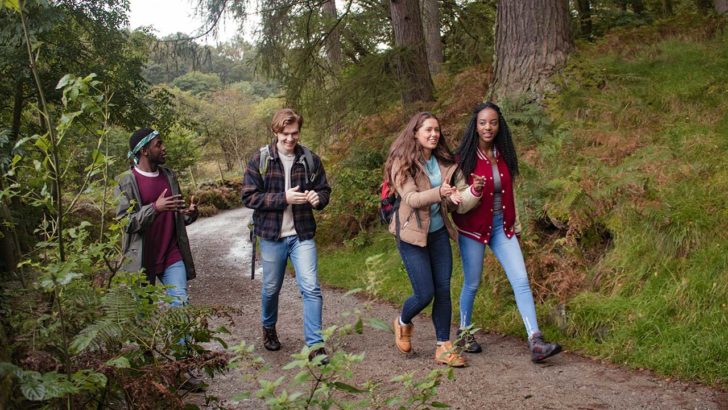
It’s no surprise to us that one of the things that these young people reported to us as challenging was finding affordable rural housing, something on which we campaigned passionately in 2021 as for many years before. We therefore welcomed the prime minister’s party conference speech in October, which adopted CPRE’s position that ‘the homes young families need’ should go ‘not on green fields, not just jammed in the south east, but on brownfield sites in places where homes make sense’. This was followed by the Chancellor’s autumn budget allocation of £1.8bn to ‘unlock’ 160,000 brownfield homes – another victory for our planning campaign.
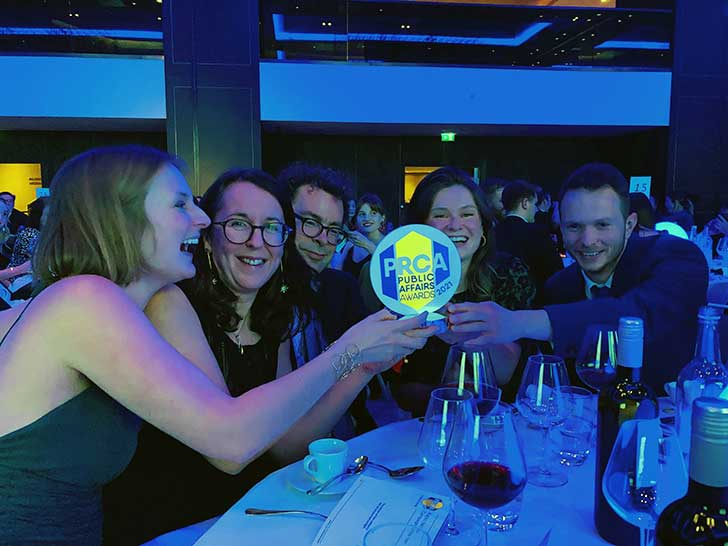
And it was gratifying to see the seismic impact of CPRE’s work on challenging the government’s planning proposals recognised in November when the charity saw off stiff competition from the likes of Transport for London to win a Public Relations and Communications Association award for the work influencing the government on their proposed planning changes. Presenting the PRCA award, the judges said: ‘This was a powerful and memorable campaign which received solid support and strong messaging and ultimately exposed the failings of the Planning White Paper and certainly did get the government to think again.’
November was also not without its challenges, as missed opportunities at the COP26 global climate summit frustrated campaigners worldwide. CPRE was represented at the conference, with staff visiting Glasgow to speak for the countryside and colleagues mustered for climate protest marches in Scotland and London.
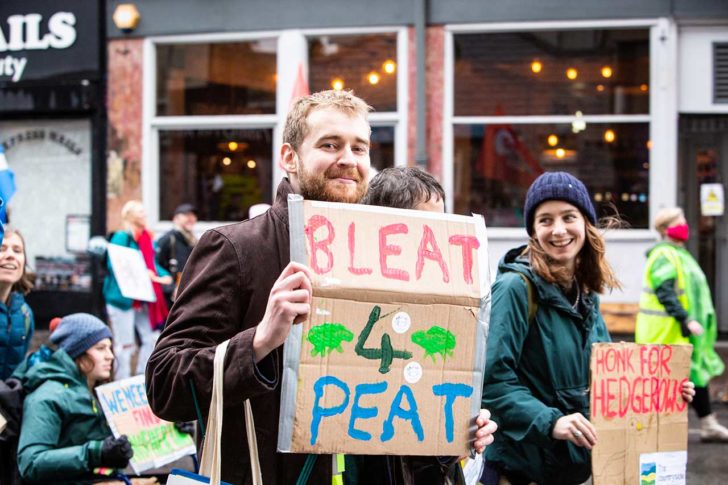
And finally, and speaking of climate change, after a spell of unseasonably warm weather delayed the start of hedgerow planting season, December finally saw our hard-working hedgerow volunteers across the country start maintaining and laying new hedgerows to work towards our climate-busting target.
Want to be a part of the future of our remarkable and historic charity? Joining us as a member is one of the best ways to support us to keep working for more successes like these.
